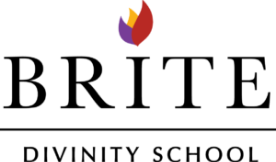
Core Focus
All courses challenge students to practice the arts of critical thinking and theological writing. Through this program, YOU will learn to:
- Learn, analyze and evaluate Christian beliefs, ideas, and concepts
- Ask questions about Christian traditions and practices
- Inquire about the implications of one's faith on one's practices
- Explore one’s own biases on faith
- Arouse or awaken one's theological imagination

YOU might be ready for a certificate in Theological Foundations, if YOU are:
- Seeking deeper theological understanding
- Considering returning to higher education to study in Christianity
- Transitioning from other professional fields into ministry and nonprofit fields
- Questioning if you're ready for graduate-level work
- Curious about any of the course offerings

Graduate Certificate in Theological Foundations
Join Today
Thoughtful. Accessible. Transformative. Let your curiosity lead you toward deeper understanding. Begin your journey of discovery today!
Apply Today
Agenda
Jan 12 – March 9: Introduction to Theological Reflection
March 10 – May 11: Introduction to Biblical Interpretation
May 12 – July 3: Pastoral Care
Aug 24 – Oct 19: Ethics: Justice as Concept and Practice
Oct 20 – Dec 14: Vocational Discernment
Students can enter the course in the Spring or Fall semester*
Courses
This course introduces students to basic themes and processes that are important to the discipline of Christian theology. The course explores how faith interacts with lived experience, scripture, tradition, and contemporary challenges. Through diverse voices and reflective tools, students will learn to integrate theology with everyday practice in ways that are thoughtful and responsive to the world around them.
Learning objectives:
- Students will expand their knowledge around theological concepts and ideas.
- Students will develop the capacity through practice to explore sources and engage in informed dialogue concerning the Christian faith.
- Students will practice the art of writing about Christian theology reflectively and analytically.
This course focuses on some of the elements and lenses that play a part in the interpretive process of the Christian biblical text. Students will be exposed to the nature of the text and how it came to be. They will analyze and apply scholarly approaches and theoretical frameworks to understanding the messaging within the biblical texts.
Learning Objectives:
- Students will learn various interpretive approaches.
- Students will be introduced to development of the documents that form both bodies of sacred texts and to the process of canonization.
- Students will examine the role of their own personal context in their interpretation of Scripture.
- Students will practice writing theologically while engaging with a range of interpretive approaches to the biblical text.
This course will introduce students to theoretical and theological foundations of effective spiritual care. Students will also begin to develop some core skills needed in effective caregiving (such as listening and using diagnostic questions). In the process, students will begin to practice the art of reflecting theologically and theoretically on the human experience, including their own.
Learning objectives:
- Students will understand the basic parameters of the field of pastoral theology and practices of spiritual care.
- Students will begin to learn to draw on theories and theologies to explore and understand more deeply human experience.
- Students will develop their capacities for understanding self and other.
- Students will practice writing reflecting upon and utilizing pastoral theological approaches and models.
This course introduces students to theological ethics with a particular focus on the concept and practice of justice. Students will explore different conceptions of justice, how moral reasoning is shaped by context, and how individuals and communities can engage in justice-seeking practices. Emphasis is placed on cultivating critical thinking, reflective writing, and theological imagination.
Learning Objectives
- Students will articulate a basic understanding of Christian ethical reasoning.
- Students will critically analyze and distinguish Western theories of justice from biblical conceptions, highlighting their underlying assumptions, values, and implications.
- Students will evaluate the relationship between personal values, social systems, and theological commitments.
- Student will engage in theological writing that demonstrates critical thinking, clarity, and imagination.
- Students will reflect on the meaning and implications of justice in their own context and vocation.
In this course, students will examine several issues related to calling and vocation in ministry, including both the general call to all people of faith and the particular vocations to which individuals may be called. Students will explore a variety of lay and clergy leadership roles, identifying their own emerging sense of calling to particular contexts and types of ministries, and examine several perspectives on leadership and authority in ministry.
Learning objectives:
- Students will become familiar with and be able to articulate theological perspectives on call and vocation in ministry (lay and clergy).
- Students will begin to identify their own emerging understanding to the type of vocation (whether that is lay or clergy) to which they may be called.
- Students will become familiar with their own faith tradition’s understanding of religious leadership and authority in ministry.
- Students will practice the shape and purpose of ministerial leadership in writing.

